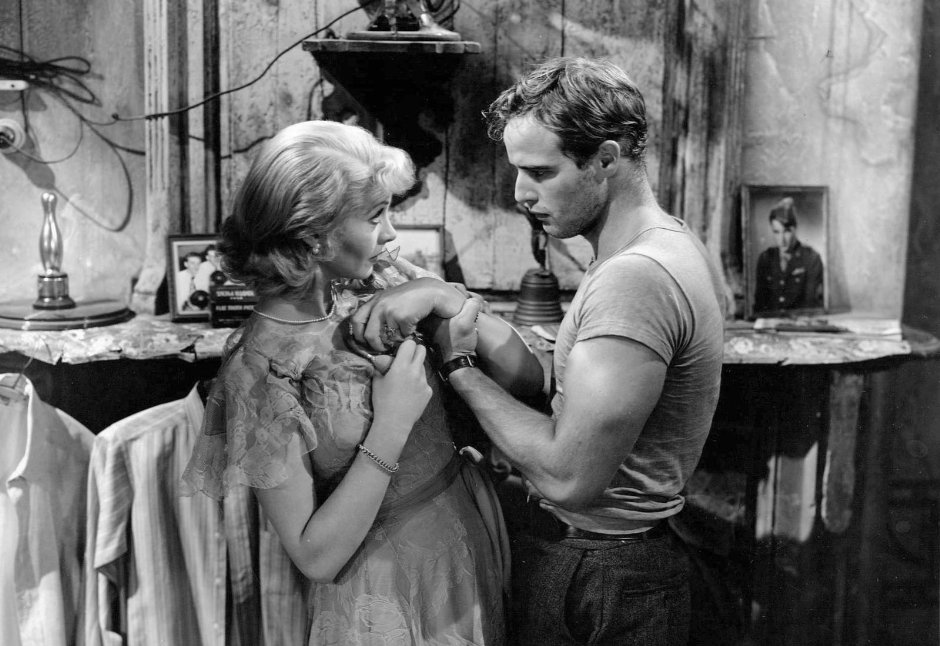Friday
My student Courtney Fielders is writing an interesting essay on how audiences were blown away by Streetcar Named Desire, which debuted on Broadway in 1947. Or at least male audiences were blown away. The one female reviewer she found, Mary McCarthy, was less impressed, and Courtney thinks she knows why.
In Tennessee Williams’s battle of the sexes, it was clear who most of the critics were rooting against. Legendary New York Times critic Brooks Atkinson saw Blanche as a delusional snob who “buoys herself up with gaudy dreams, spends most of her time primping, covers things that are dingy with things that are bright and flees reality.” Male critics, Courtney points out, ignored the play’s rape scene and did not question for a moment Stanley’s right to assert his dominance. When Stanley sees Blanche as an “unforgivable liar” who is disposable, Courtney says, these reviewers barely protested.
Looking back decades later at Brando’s film performance—playgoers would have seen it first on the stage—Washington Post’s Lloyd Rose writes,
Brando…burns on the screen. Leigh is excellent, but as Kazan noted about the stage production with [Jessica] Tandy, “Hers seemed to be a performance; Marlon was living onstage.” Brando’s performance as Stanley is one of those rare screen legends that are all they’re cracked up to be: poetic, fearsome, so deeply felt you can barely take it in. In the hands of other actors, Stanley is like some nightmare feminist critique of maleness: brutish and infantile…and full of a pain he can hardly comprehend or express. The monster suffers like a man.
McCarthy doesn’t directly stand up for Blanche. Instead, she accuses Williams of trying to advance his career by piling on the woman. McCarthy sees Blanche as an over-the-top creation, sometimes a “refined pushover and perennial and frigid spinster,” sometimes a “notorious libertine.” On top of that, Williams makes her the widow of a gay man who shoots himself. In contrast to this outré concoction, Stanley is simply a brute force. McCarthy is less impressed with this force than are the male reviewers.
Courtney provides historical background to explain what is going on. The Rosie the Riveters who had heroically flooded into the factories during World War II were now seen as emasculating threats. It didn’t help that 75% of them didn’t want to return to domestic life. Male viewers wanted Stellas, which is to say, compliant stay-at-home wives. Blanche, on the other hand, must be put in her place. Courtney describes the situation:
The play embodied men’s shell shock when they returned home and found that women had taken over their jobs and their role as family provider. Stanley views Blanche as deceitful and does not appreciate her attempt to make him and his friends look like fools. He despises her idea that she is better than them and does everything he can to ruin any happiness she may have with his friend Mitch.
Streetcar played to men’s resentment-fueled rage with Stanley’s domination, as did cinema’s hardboiled detectives who humiliated, tamed and sometimes shot femmes fatales. No wonder McCarthy didn’t fall for Brando’s passion.
Given all the recently revelations about sexual harassment, millennials like Courtney aren’t falling it for it either.


